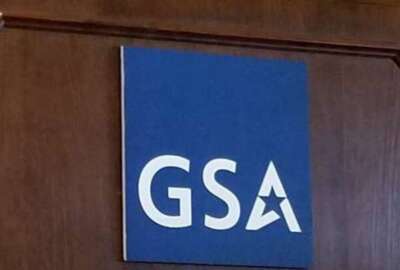Devaney: ‘Long past due’ for governmentwide spending oversight
Agencies and lawmakers, seeking to implement accountability and transparency practices governmentwide, are taking a page from the Recovery Board's playbook. One of...
wfedstaff | April 17, 2015 3:52 pm
Agencies across government are looking for ways to get the most out of declining budgets. And for its part, Congress is increasingly mindful of how agencies are spending federal dollars.
But vigilance about wasteful spending is not anything new. When the Obama administration proposed more than $800 billion in federal spending and projects to bolster the faltering economy in 2009, the White House set up the Recovery Accountability and Transparency Board to track how the infusion of cash was spent.

Now agencies and lawmakers, seeking to implement accountability and transparency practices governmentwide, are taking a page from the Recovery Board’s playbook.
One of the successes of the RAT Board was in changing the way agencies dealt with erroneous or improper payments, said Earl Devaney, the former chairman of the Recovery Accountability and Transparency Board and now a senior adviser at Reznick Government.
The focus shifted from “merely chasing the money down the street to trying to prevent it from happening” in the first place, he told In Depth with Francis Rose.
Devaney said the recovery effort, which brought an unprecedented level of transparency to government spending acted as a “proof-of-concept” that the same could be done for all government spending.
“I think it wouldn’t be much of a leap at all to use the platforms that we used at the Recovery Board to show spending in the Recovery program for all government spending.”
In fact, there’s already evidence that’s happening, he said.
Echoes of the Recovery effort
In July, the White House launched the the Government Accountability and Transparency Board, which sought to institutionalize many of the RAT Board’s practices. The President named Devaney the first chairman of the GAT Board, a position he held until he retired in December.
The echoes of the Recovery effort can also be found in the DATA Act, which passed the House in April. Introduced by Rep. Darrell Issa (R-Calif)., the bill would create a five-member commission to track government spending, modeled on the RAT Board model.
“I actually do believe transparency is a force multiplier for accountability. With that much scrutiny and that much sunlight on that spending, I think the bad guys just simply stayed away from our money,” Devaney said of the relatively low level of fraud in Recovery Act spending.
He attended a panel discussion last week, sponsored by the Partnership for Public Service and Grant Thornton, on how lessons of the Recovery Act can be applied more expansively across government.
The rapid changes in technology in the three years since the RAT Board began tracking spending via the Recovery.gov platform also bode well for wider implementation.
“I think a single platform, where all the data could be transparent and a single platform where both agencies and enforcement types would have access to the data and the tools that would be necessary to prevent fraud from going to the wrong people, is very possible in today’s technology world,” Devaney said.
Thaw in agency, IG relationship
As agencies use the Recovery model to crack down on the spread of improper payments, agencies and inspectors general are starting to work more collaboratively, Devaney said.
Traditionally, “when the goal is to detect fraud, waste and abuse, IGs naturally come to the table very aggressively and agencies sort of stand back,” he said. As the Interior Department IG, the position he held before leading the RAT Board, Devaney uncovered widespread impropriety at the agency’s Minerals Management Service.
But during the Recovery effort, agency leadership became just as aggressive about stemming waste and fraud, he said.
“There’s always been a natural tension between agencies and IGs, and in some cases that’s a healthy thing,” Devaney said. “But in terms of preventing fraud, waste and abuse, I think that it’s long past due that agencies and IGs put their heads together and come up with ways to do that.”
RELATED STORIES:
Think tank points to valuable Recovery Act lessons
Recovery Board is model for governmentwide oversight efforts
DATA Act creates new oversight commission
Copyright © 2025 Federal News Network. All rights reserved. This website is not intended for users located within the European Economic Area.





